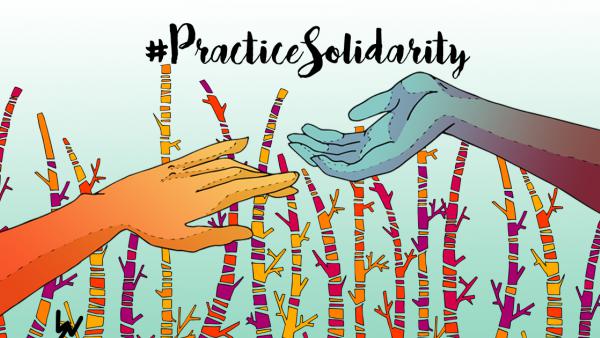Feminism is inherently about challenging the patriarchal status quo and using constructive critique to bring attention to problems and arrive at solutions. However, as young feminists, we can get too lost in our criticism and analysis of the issues that face us that we forget to allow there to be a margin of error. There is little space to be wrong.
For example, if someone who identifies as a feminist uses a term incorrectly they may be called out with anger and annoyance. It is unlikely that the term will be helpfully explained to them. Or, if they reference some pop culture as feminist, not knowing problematic aspects of it, they may be responded to with irritation and condescension. Their mistake will be seen as evidence of them not being a ‘real’ feminist.
Also Read: 4 Things That Do NOT Make You A Bad Feminist
Why is that? Do we hold ourselves to too high a standard of awareness and information? Are we hostile towards others who fall short of it because we’re used to constantly defending ourselves? We find ourselves forgetting the compassion and empathy that has always been an inherent part of our cause.
I notice this hostile reaction to mistakes more and more recently. I find myself too willing to search for the bad and wrong in the things I see in the world today. Books, TV shows, films, articles, almost anything I see on the Internet. Especially if at first glance I have a positive reaction. I feel compelled to find a slip-up and point it out. Finding the good makes less of an impression than finding the bad.
We find ourselves forgetting the compassion and empathy that has always been an inherent part of our cause.
This negative attitude expands onto my interactions with other feminists. I don’t like to speak for others, but I sense a similar distrust for genuineness by feminists I interact with. Of course, it’s reassuring and encouraging to meet people with similar mindsets, but at some unconscious level there is a need to be the ‘better feminist.’
While being constantly on guard when articulating my thoughts in public spaces, especially online, I am careful not to use statements that can be misinterpreted. We do have a certain amount of freedom when expressing our thoughts online, but we police ourselves to a large degree. If I was to write an article about something like body image, I would be careful not to make generalizations or remarks that could upset readers. I would love to say that I write exactly how I think, and am confident in every sentence. However, the truth is that I often mentally pre-empt criticism of my content and try to tailor it to avoid that. In the process, I feel like I lose some of the passion and honesty I could convey in a verbal discourse, when I’m not filtering myself so thoroughly.
I think that if we as feminists tried to be more forgiving of mistakes, it could help create a more open community and encourage others to participate more. Being forgiving or understanding shouldn’t be confused with letting demonstrations of sexism or misogyny slip.
Feminism grows through every individual’s analysis and critique of what affects their surroundings, and that shouldn’t be impacted at any cost. But perhaps we could benefit more from engaging in calm and respectful discourse with one another without making assumptions or judgements immediately.
I think that if we as feminists tried to be more forgiving of mistakes, it could help create a more open community and encourage others to participate more.
For example, I posted what I thought was a feminist comic strip on my Instagram, without doing any research about it. It turned out that my source of the comic strip had taken it out of context, and originally it made the opposite point from what I intended. I realized this only when a follower commented on it, informing me of my mistake. Their tone was angry and condescending. When I saw the original comic I deleted my post, and the experience left me feeling incompetent and nervous to share similar content in the future lest I made another error. I’m grateful that my oversight was pointed out to me, and wouldn’t discourage that at all. I do feel that our attitudes when correcting others need to be motivated more by a desire to help the individual than make ourselves look superior.
Feminists are constantly attacked for being ‘aggressive’ and ‘bitchy,’ and their opinions are met with disdain and opposition. I can’t count the times that being called an ‘angry feminist’ have made me an angry feminist. Now that I have become conscious of my own part in creating an unwelcome environment for other feminists, I try to be more aware in my day to day interactions. Not only allowing a margin of error for others, but also for myself.
Also Read: 101 On Solidarity: What Does It Even Mean?
Featured Image Source: How Matters
About the author(s)
A student at Ashoka University, Tara loves poetry, impassioned conversation and brewing warm cups of tea.




